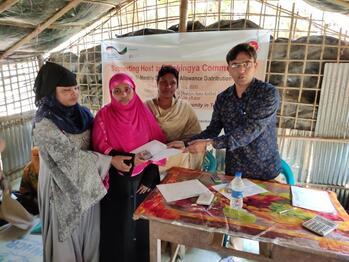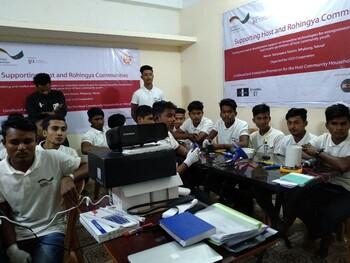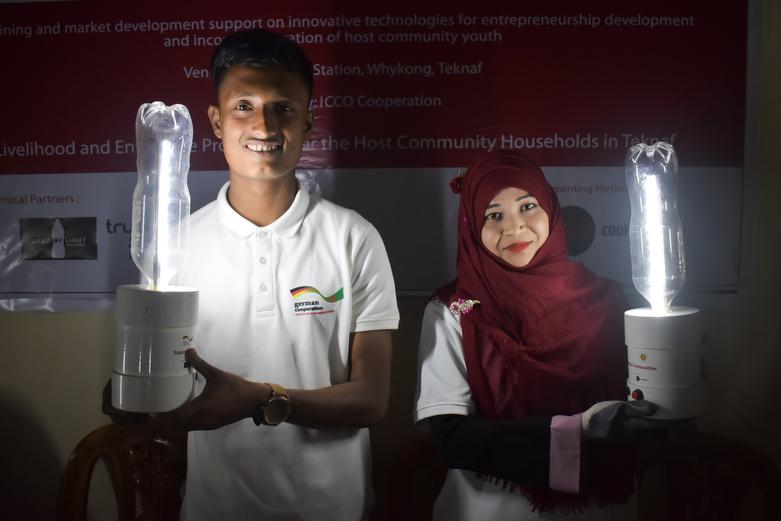Context
The influx of more than 750,000 Forcibly Displaced Myanmar Nationals (FDMN) in Bangladesh since mid-2017 has resulted in profound environmental, social, economic and psychological impacts on the host communities in the Cox’s Bazar region. Host Communities in Cox’s Bazar are experiencing a deterioration of traditional livelihoods: A decrease in income levels and economic opportunities especially for poorer people, lack of physical space including agricultural land, increasing levels of perceived threats and insecurity, and very limited availability of grievance or mediation mechanisms. These effects are resulting in increased tensions between the Rohingya and host communities.
On the side of the Rohingya population, mental and psychological problems due to the trauma of torture that lead to the forced displacement from Myanmar and the increasingly tense situation in the camps, especially for the youth are resulting in idleness and a rise in tensions.
In the current situation, the described factors are already leading to an increase in negative coping strategies like use of drugs, violence, crime and sexual and gender-based violence (SGBV) within and between respective communities.
Thus, sustainable innovative approaches are needed that are mutually beneficial in economic and social terms for both communities even when aid flow is reduced or stopped.
Objective
The use of services, which contribute to peaceful conflict resolution and the resolving of root causes between host communities and displaced Rohingya refugees is improved.


